From bathing in girls' blood to making homemade conjoined twins, these 10 famous psychopaths are some of the most terrifying people in the history of the world.
Everyone is well aware of the atrocities committed by Adolf Hitler. And many know that under Joseph Stalin’s leadership, the number of those killed via starvation and murder ranges from about 10 to 60 million.
Unfortunately, these tyrants aren’t the only ones who have taken history and left a nasty stain in its pages. Here are ten famous psychopaths from history that rank right up there with the worst of them:
History’s Most Famous Psychopaths: King Leopold II
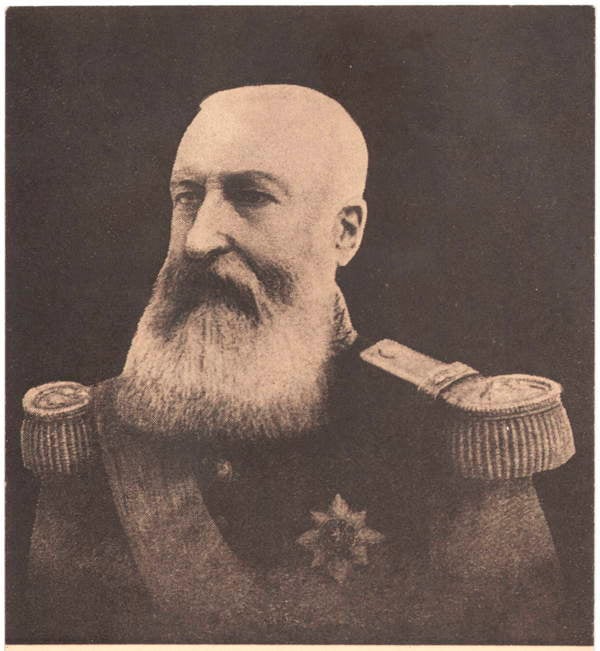
King of Belgium from 1865 to 1909, Leopold II is best known for ruling over the Congo Free State in central Africa between 1885 and 1908.
Under his brutal rule in Africa, millions of Congolese people died. The death toll estimates vary wildly (and the true number will never be known for sure), but low figures are still around 5 million while high figures sit near 20 million.
Leopold’s aim was to extract rubber and ivory from the Congo region. To do so, he used forced Congolese labor that toiled under threat of horrific abuse from Leopold’s army, the Force Publique.
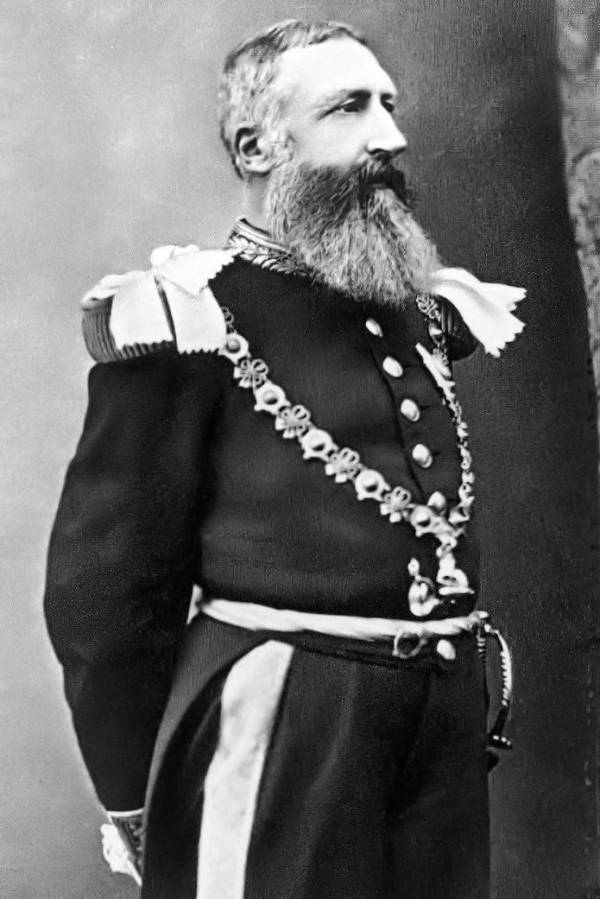
Wikimedia Commons
The atrocities committed under his regime involved enslaving the native population, torture, maiming, and slaughter.
For example, Leopold II imposed quotas on every man in his realm for the production of raw materials. Men who failed to meet their ivory and gold quota even once would face mutilation, with hands and feet being the most popular sites for amputation. If the man could not be caught, or if he needed both hands to work, Force Publique men would cut the hands off of his wife or children.
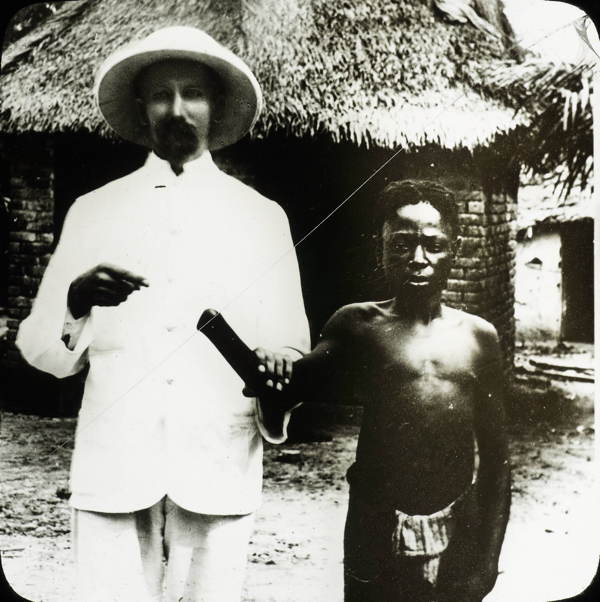
A Congolese boy who is missing his hand.
International pressure over reports of abuse that had leaked out finally forced Leopold to change some of his policies and cede some of his land in 1908. Nevertheless, the Congo was still a Belgian colony and widespread atrocities persisted until the country’s independence in 1960 (when civil war and atrocities of other varieties began).
Pol Pot
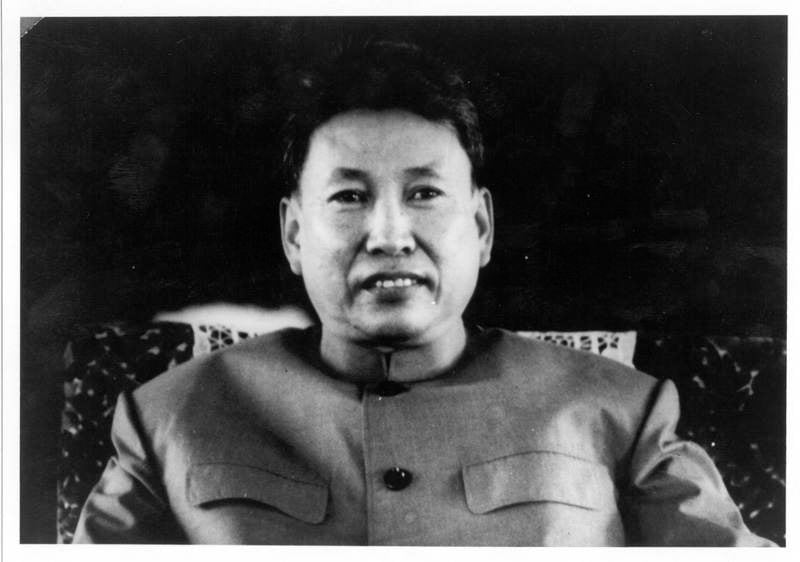
Born in 1925, Pol Pot became the leader of the Khmer Rouge party and Prime Minister of Cambodia from 1976 to 1979. He had held the position in a de facto role since mid-1975, but after coming into power officially, he imposed a fierce agrarian policy that led to the demise of about 25 percent of the Cambodian population.
Pol Pot formed a Communist peasant farming society, where all of Cambodia’s cities were forcibly vacated, and the 2 million residents were forced to live and work in the countryside. Citizens were forced into slave labor: work began from 4 AM and lasted until 10 PM, overlooked by Khmer Rouge soldiers.
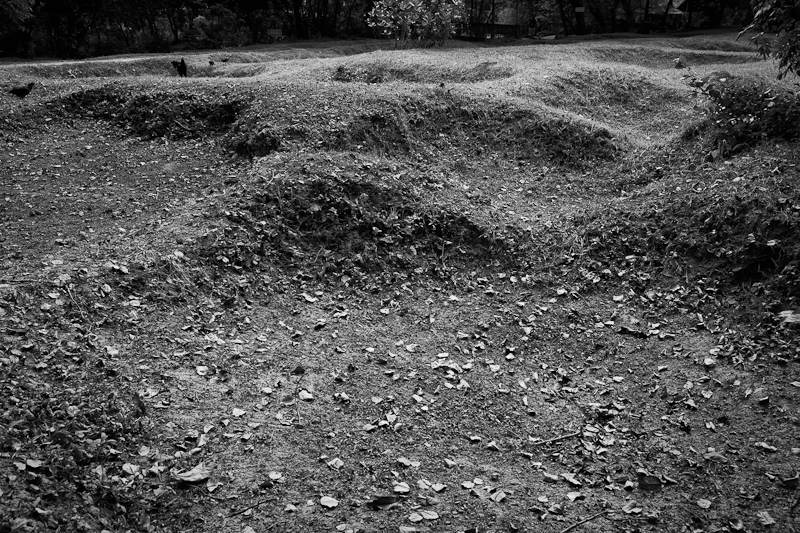
Pol Pot’s killing fields. Source: Marc Oryan Photography
Aside from slave labor, the citizens had to endure malnutrition (workers were permitted one 180-gram tin of rice every two days), poor medical care, and executions if there were any infractions.
Worst of all, the Khmer Rouge committed mass executions and burials in “Killing Fields,” carried out using hammers, axe handles, spades or sharpened bamboo sticks. The killings targeted all sorts of perceived threats and undesirables, including intellectuals, urban professionals, supposed foreign sympathizers, opponents of communism, and others.
His regime came to an end in 1979 when the Vietnamese army invaded Cambodia and drove out Pol Pot and the Khmer Rouge. It is estimated that 2 million people died during the Cambodian genocide.
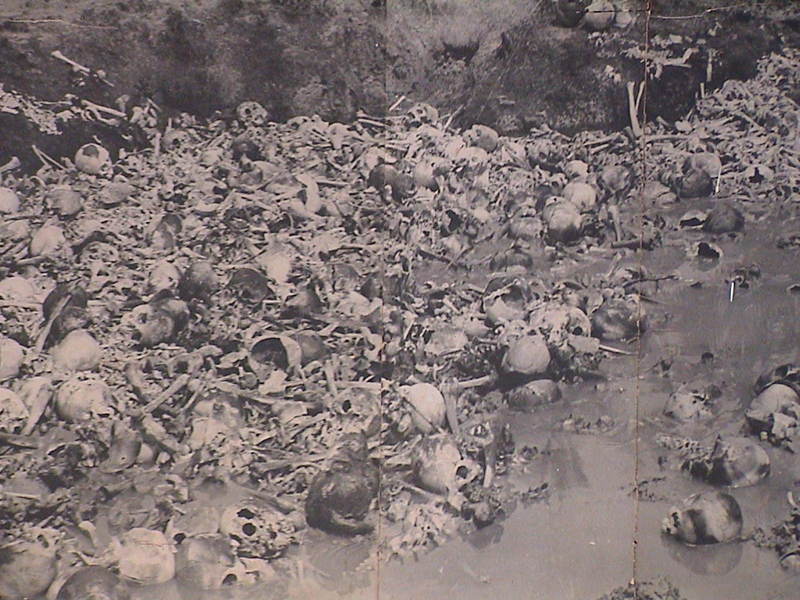
Bones in the Cambodian killing fields.
History’s Most Famous Psychopaths: Ivan IV of Russia
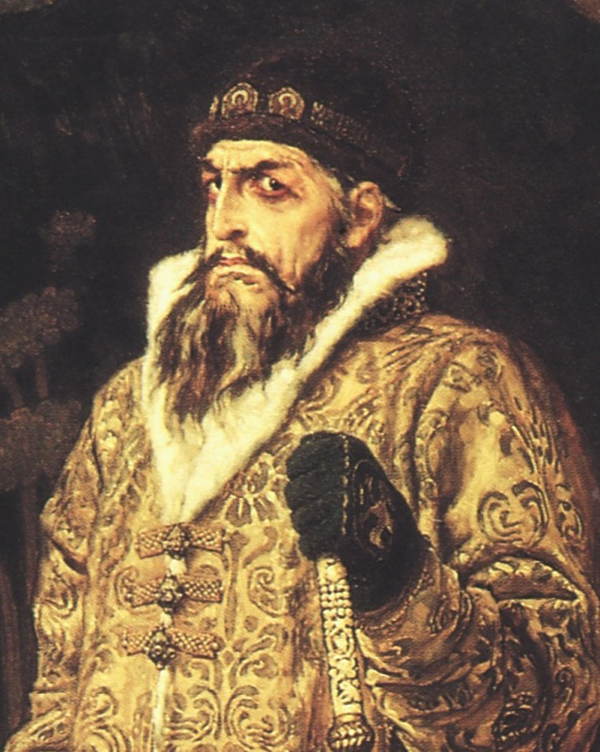
Source: Wikimedia
Ivan IV of Russia – better known as Ivan the Terrible – was the Grand Prince of Moscow from 1533 to 1547, and the first Tsar of Russia from 1547 until his death in 1584. His lengthy reign was marked by the expansion of the Russian borders and its progression from being a medieval state to a powerful empire.
Ivan had a peaceful reputation at the beginning, not receiving the sobriquet until later. Unfortunately, this early benevolence was actually marked by a number of atrocities due to his quest for expansion and his tendency to control the population via strict military rule.
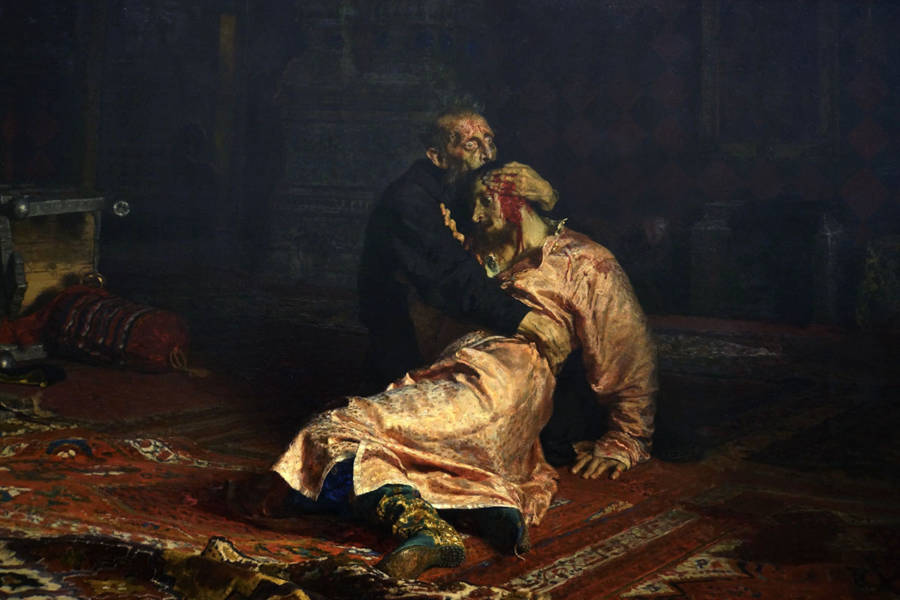
Wikimedia CommonsIvan the Terrible just after killing his son.
In 1570, for example, Ivan was under the impression that the elite of the city of Novgorod planned to defect to Poland, and led an army to stop them. His army subsequently built walls around the perimeter of the city to prevent escapees and rounded up civilians, torturing and killing between 500 and 1,000 of them in front of Ivan.
In what may be an explanation for some of his actions as a bloodthirsty, paranoid ruler, Ivan supposedly suffered from mental illness. Such illness may or may not also explain his decision to beat his pregnant daughter-in-law for wearing immodest clothing, causing a miscarriage. When Ivan’s son learned of his wife’s miscarriage, he confronted his father, the two fought, and Ivan ended striking his own son in the head with a staff hard enough to kill him.
Elizabeth Bathory
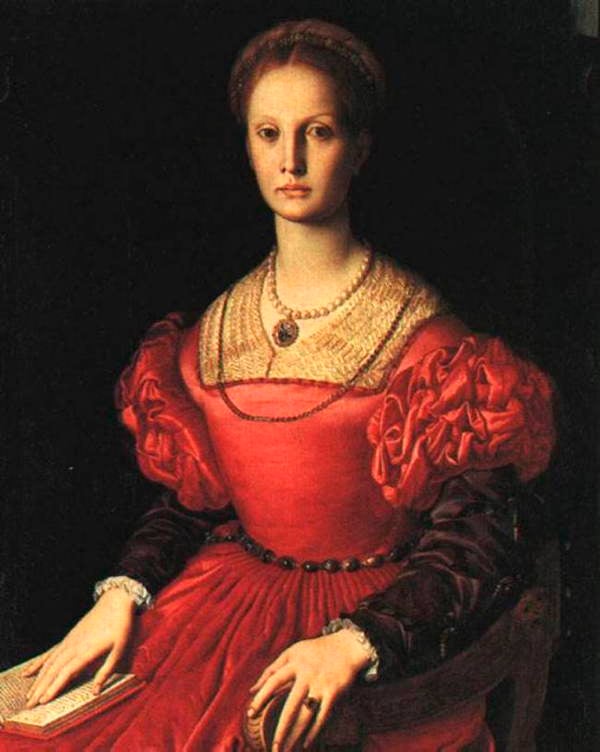
Inspiration for the Countess Dracula and a woman deemed one of the most prolific serial killers of all time, Elizabeth Bathory specialized in the grotesque and purely vile.
Born in 1560, she served as a countess in the Kingdom of Hungary but has since become known for her sadistic crimes. Though the number of her victims is disputed, it is believed that she was responsible for torturing and killing hundreds of girls between 1585 and 1610.
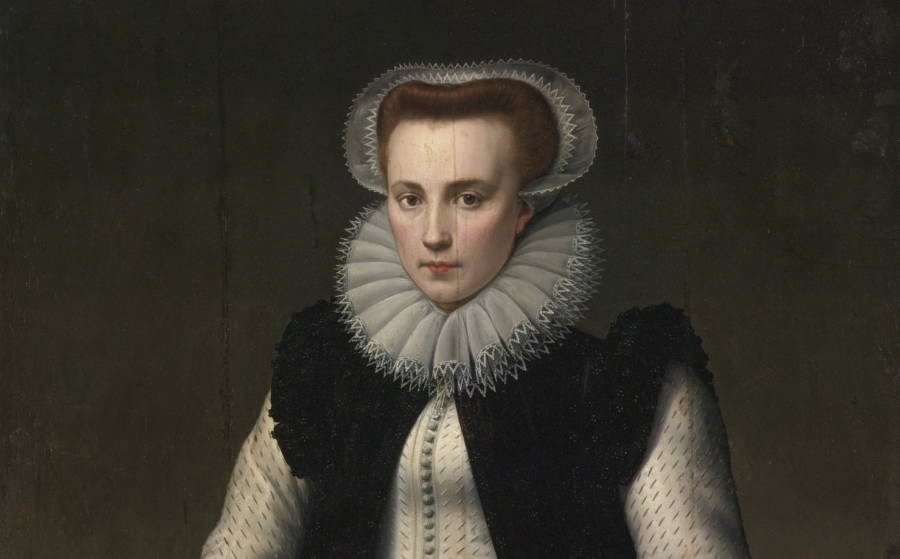
Wikimedia Commons
Her execution methods were incredibly disturbing, as she would torture the girls while naked, forcing them to eat their own flesh, stabbing them with needles and burning parts of the face, genitalia and other bits of their flesh. Bathory would torture them for weeks, and many would starve or else be burned or frozen to death.
It is also widely believed that she would bathe in their blood under the delusion that it would help her retain her youth. She was eventually caught in 1610, but her affluence and power shielded her from any serious consequences. She was simply forced to while away the remainder of her life in a small set of rooms while guards watched over her until her death in 1614.
History’s Most Famous Psychopaths: Heinrich Himmler
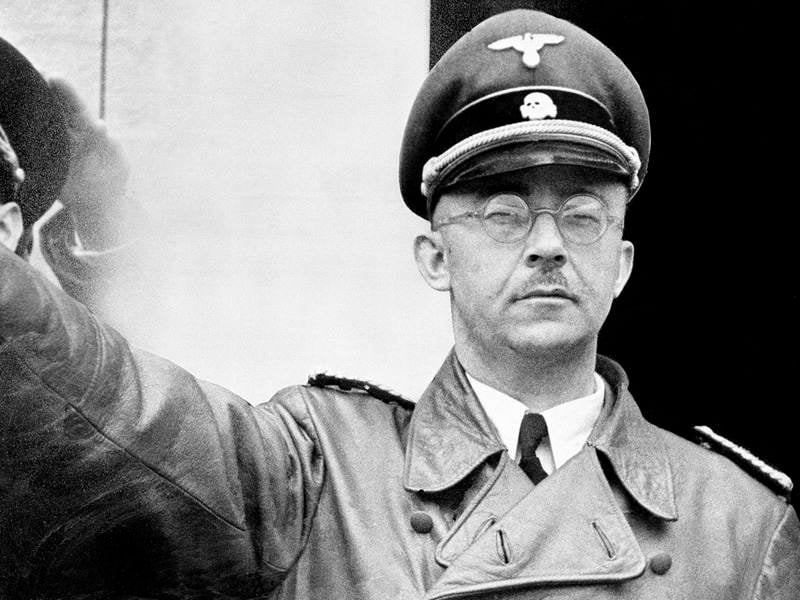
Born in 1900, Heinrich Himmler was the second most powerful Nazi and possibly the most feared man in Nazi Germany. As the leader of the SS from 1929 to 1945, Himmler was responsible for conceiving and implementing the Holocaust.
Himmler served as the head of the unified police forces in Germany and also held command of the German concentration camps, organizing and ensuring that the death trains ran on time and that the camps adhered to strict standards of murderous efficiency.
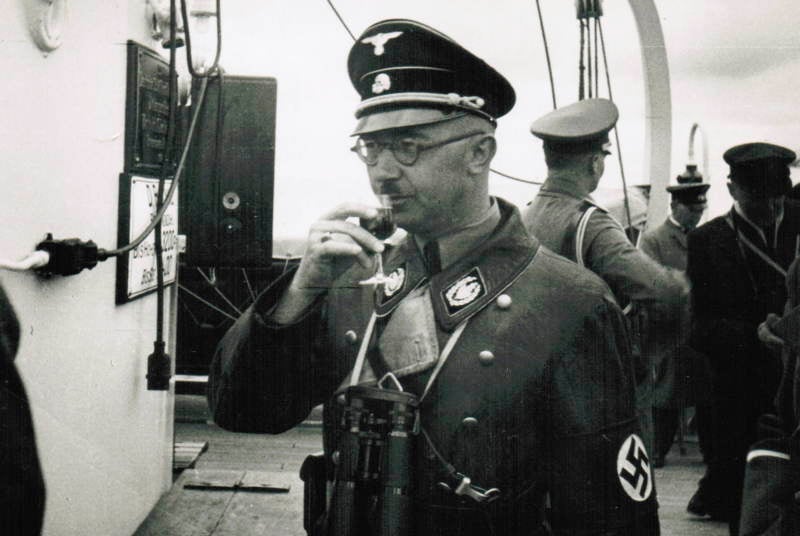
His decisions and efforts helped cause the deaths of some 11 million people, including Jews, Poles, Russians, communists, and other groups deemed fit for death by the Nazis.
As for his own personal cruelty amid the enormous wave of murder, it is said that Himmler’s house contained furniture and books made from the bones and skins of his Jewish victims. He eventually committed suicide by poison in 1945 as the Nazi regime fell and his comrades were being taken prisoner or executed.
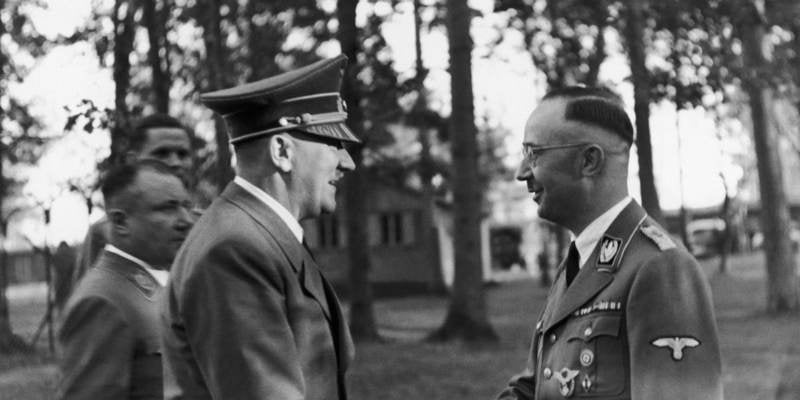
Adolf Hitler and Heinrich Himmler.
Adolf Eichmann
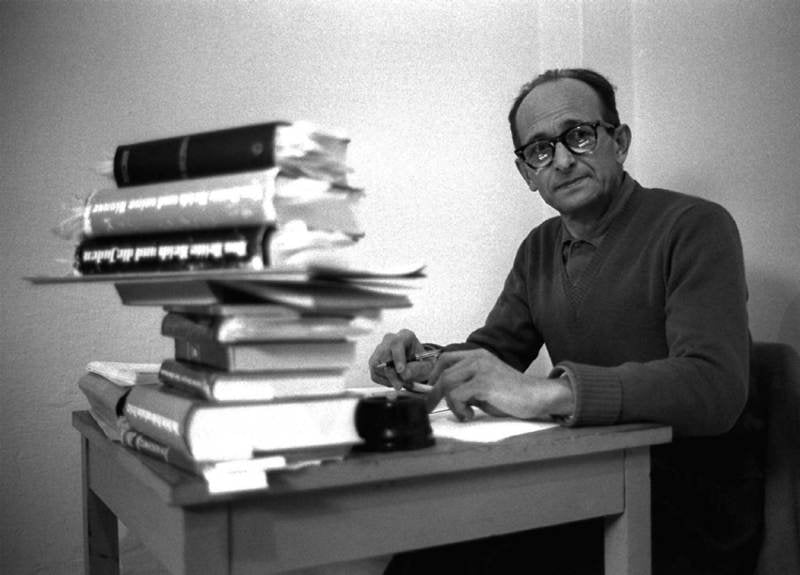
Source: The Star
Like Himmler, Nazi leader Adolf Eichmann was another of the Holocaust’s main orchestrators.
He was an instrumental part of the 1942 Wannsee Conference, at which Nazi leaders first coordinated on the plan for the Holocaust. Once things were in motion, Eichmann helped preside over the mass deportation of Jews into concentration camps, tirelessly working to organize the transportation, murder, and disposal of Holocaust victims, largely Jews hailing from Eastern Europe.
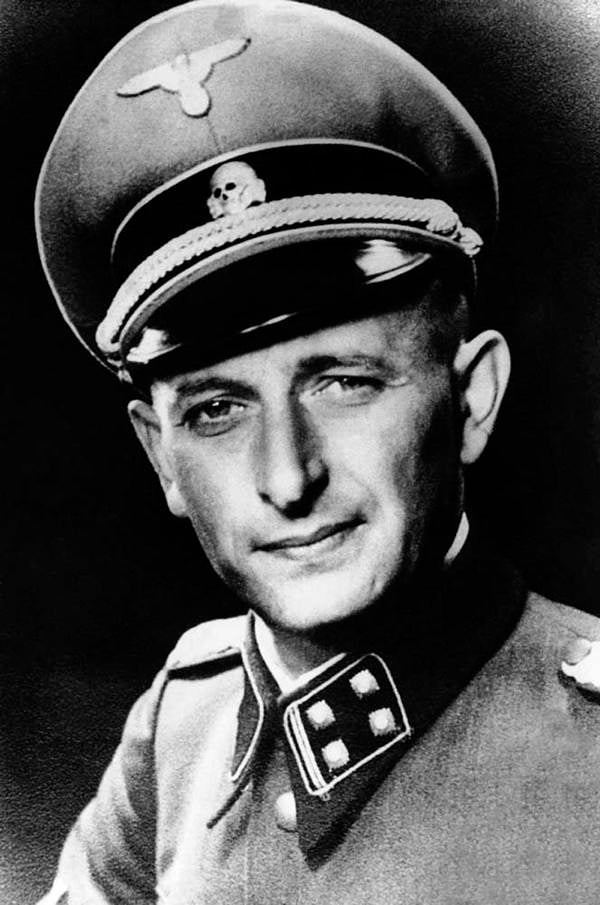
After the war, Eichmann eluded capture for 15 years but was eventually tried and hanged for his crimes in 1962.
Showing neither hatred nor mental illness during his trial, Eichmann provided evidence that, according to Nazi hunter Simon Wiesenthal, you don’t need to be sadistic or mentally ill to kill millions; a desire to “do your duty” will suffice.
One of Eichmann’s Nazi comrades once heard him say that he would “leap laughing into the grave because the feeling that he had five million people on his conscience would be for him a source of extraordinary satisfaction.”
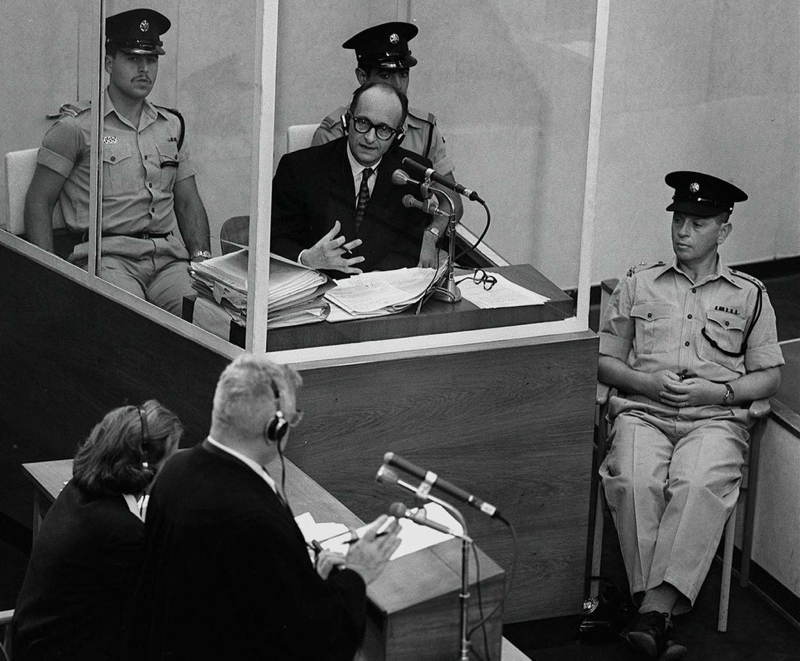
Eichmann on trial. Source: Jewish Currents
History’s Most Famous Psychopaths: Tomás de Torquemada
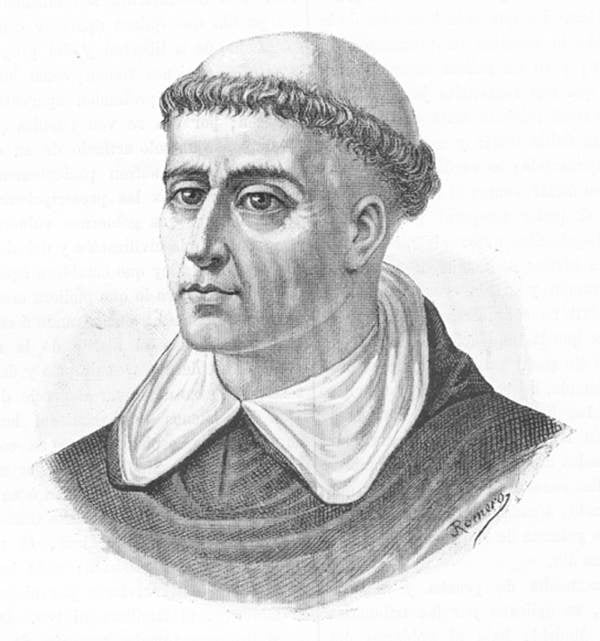
Source: Latin American Studies
Tomás de Torquemada was the Grand Inquisitor of Spain and a central architect and perpatrator of the Spanish Inquisition starting in 1478.
The Inquisition’s tribunal was created by the Spanish monarchy to weed out anyone that they believed to pose a threat to the Roman Catholic Church in Spain. The Inquisition led to the death, torture, and rape of thousands – usually without evidence.
Torquemada would order Jews and others perceived to be an anti-Catholic threat to be tortured or killed, inventing several specific torture techniques just for them. People were tortured by means of burning, suffocation, and starvation.
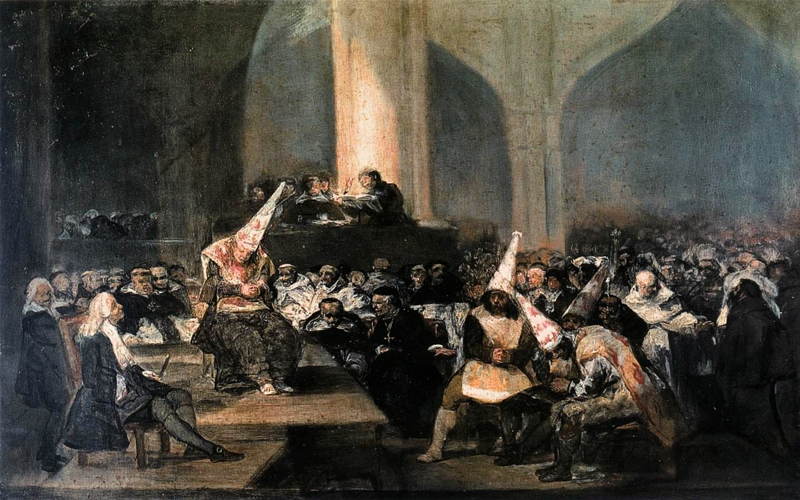
The death of de Torquemada Source: Imagen Política
Specific torture schemes included the garrucha (pulling a prisoner’s arms and legs from their sockets), the toca (water was forced down the victim’s throat) and porto (tight cords tied around the victim to stop blood from flowing).
Tomás de Torquemada is believed to have presided over the killings of thousands of people, and to have helped cause the exile of 200,000 to 300,000 Jews or Muslims who did not embrace Catholicism from Spain. After all of his atrocities, Torquemada died of old age in 1498.
Be sure to watch this video on de Torquemada from Discovery:
Josef Mengele
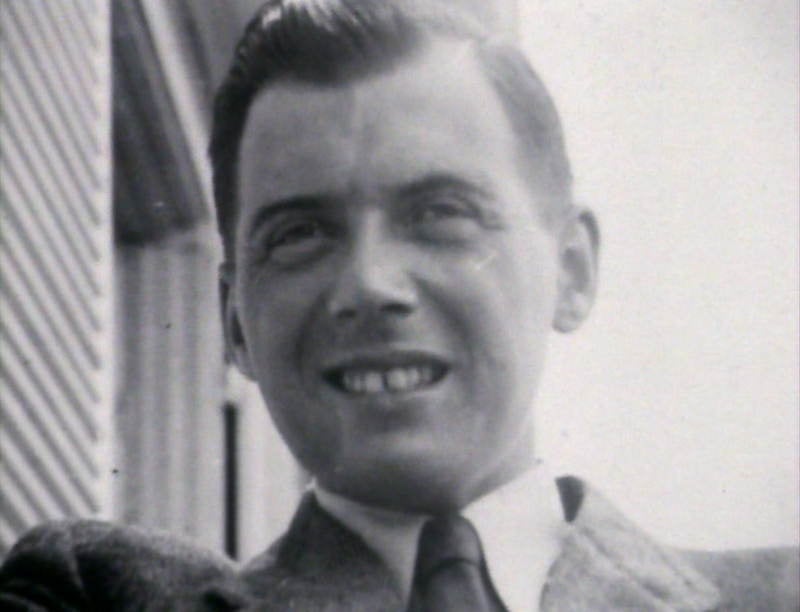
Known as the “Angel of Death,” Josef Mengele worked as a physician in the Nazis’ Auschwitz concentration camp. It was there that he oversaw countless murders as well as cruel, disturbing experiments on the imprisoned.
Mengele’s most popular experiment was with twins, as he would pour chemicals into their eyes to see if they would change color, try to change their sex, and literally sew them together to see if he could create conjoined twins. He experimented on thousands of twins, and just a tiny fraction survived.
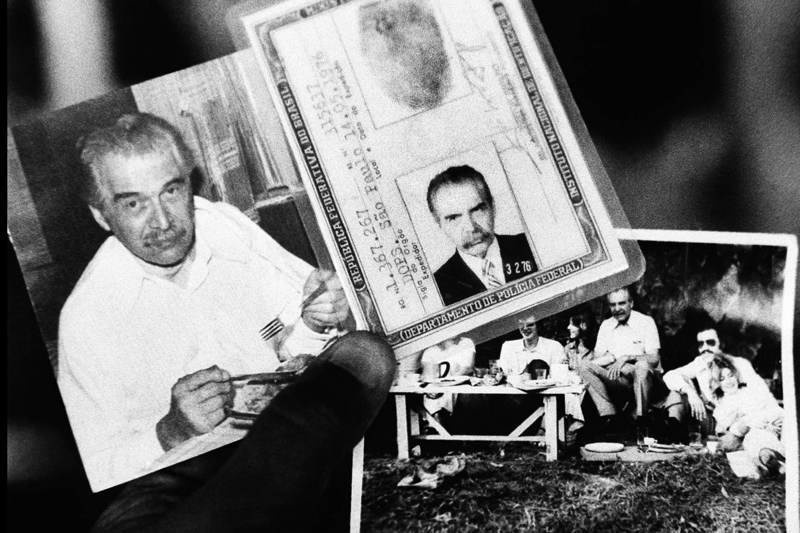
Josef Mengele late in life.
The Angel of Death would sometimes force parents to kill their own kids, torture children to see how long they would survive, beat prisoners to death — or simply order them to the gas chambers by the thousands.
After the war, Mengele was able to escape to South America with his family and died in Brazil after suffering a stroke while swimming in 1979.
History’s Most Famous Psychopaths: Vlad The Impaler
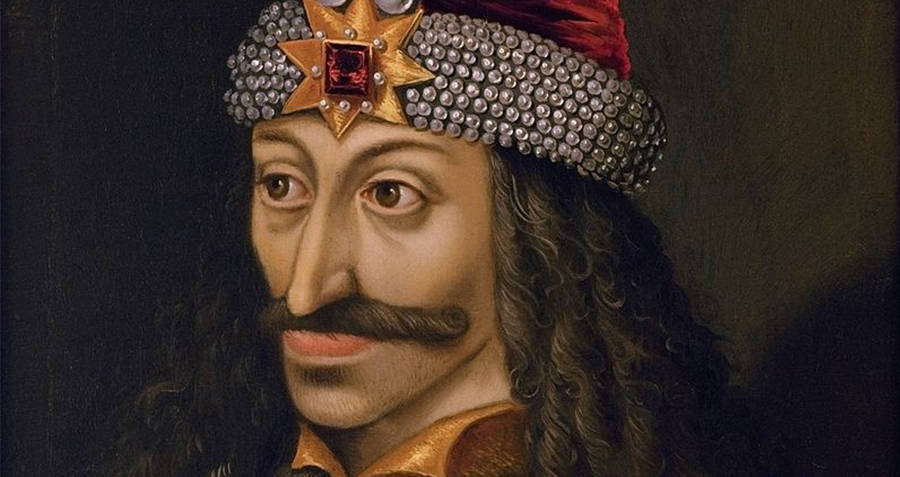
Wikimedia CommonsVlad Dracula, later Dracula, the impaler.
Vlad the Impaler is one of the most infamously deranged dictators in human history, in large part due to the iconic character he inspired: Dracula. The vampire was even named after the 15th-century prince of Wallachia (part of present-day Romania), but the truth is even stranger than fiction.
After being kept in a tower for most of his childhood, imprisoned there by one of his father’s enemies, Vlad decided to seek revenge. He took power back from his oppressors and decided that anyone who crossed him would end up dead.
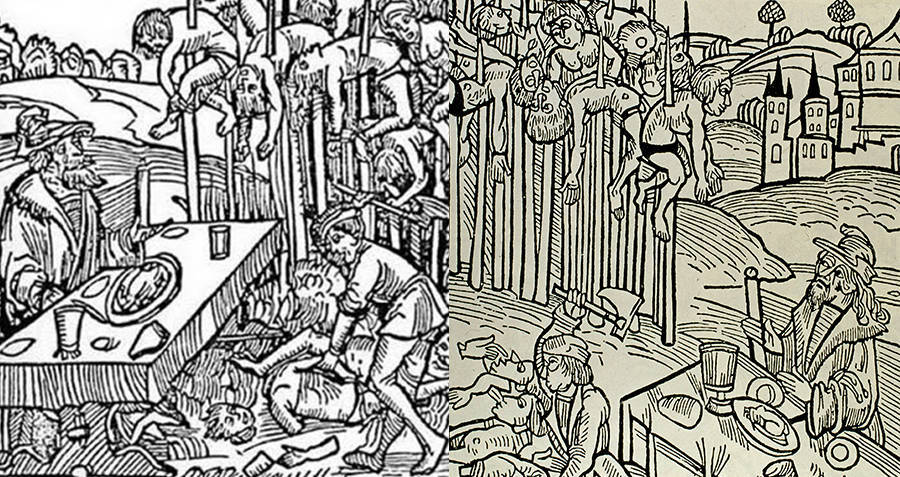
Wikimedia CommonsVlad the Impaler’s forest of spikes.
To prove his point, Vlad hosted a dinner, to which he invited everyone who had voiced opposition to him. As they arrived, he stabbed them all, impaling their still-twitching bodies on spikes for all the townspeople to see. Because the tactic was so effective at striking fear into the hearts of his enemies, Vlad began using it on all who opposed him. Before long, the people began to call him Vlad the Impaler.
He certainly lived up to his name, impaling 20,000 of the 80,000 total people killed under his regime on spikes to send a message. Legend has it that he would even host dinner parties in a forest made of spikes, the bodies impaled on them still dripping blood.
He ultimately died a bloody death himself while fighting against the Ottomans circa 1476/1477.
History’s Most Famous Psychopaths: Jim Jones
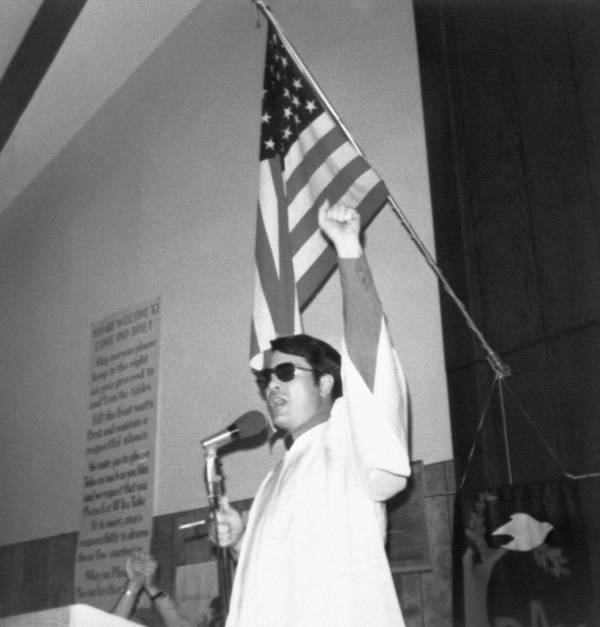
Bettmann/Getty ImagesJim Jones, preaching to his followers.
Though the phrase “drinking the Kool-Aid” is used a little bit as a joke today, to poke fun at someone who’s buying into a scam or a group mentality, the origins of the phrase are quite sinister. In 1978 in Guyana, 900 people – 300 of them children – drank cyanide-laced Kool-Aid and died at the behest of their cult leader: Jim Jones.
Until September 11th, the Jonestown Massacre as it came to be known, was considered the single largest deliberate loss of American civilian life in history.
Jones had started his Jonestown Colony in Guyana as a place for his Peoples Temple cult to escape what he perceived to be the stresses of modern American life.
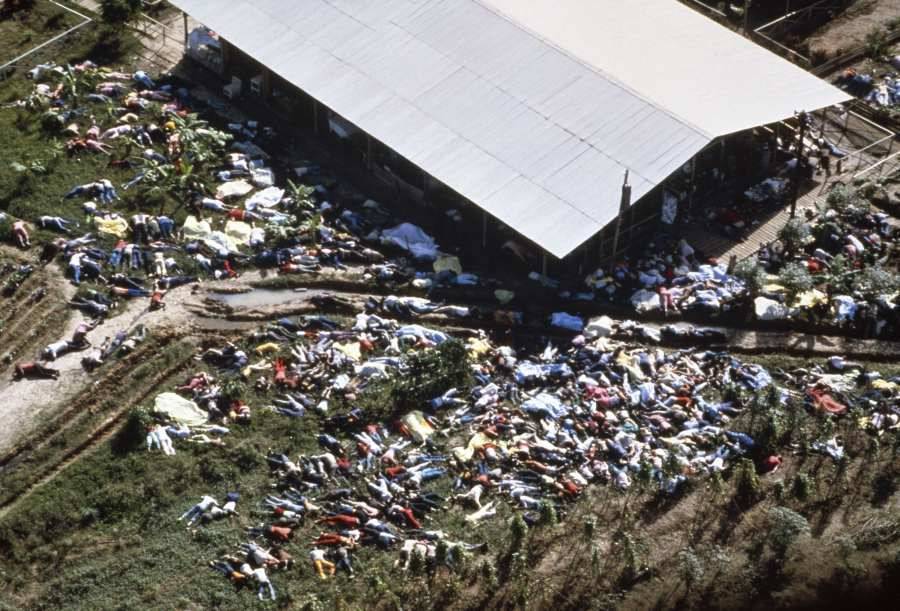
David Hume Kennerly/Getty ImagesAn aerial view of the aftermath of the massacre.
Often strung out on various drugs, Jones brought his isolated followers to his colony, where he continuously told them he could help them while teaching them to fear the outside world.
However, the Peoples Temple started falling when members from the U.S. government traveled to Guyana to help bring members home. Jones had instilled so much fear in his followers that they believed the government officials were there to bring them to concentration camps, or kill them. Scared they would die as captives in the United States, they rallied together around Jones for support.
Rather than helping them, he killed them all, lacing large batches of an off-brand Kool-Aid with cyanide, and encouraging them to feed it to their children and take it themselves.
That same day, he killed himself with a gunshot to the head.
If you enjoyed our article on history’s most famous psychopaths, check out our post on brutal serial killers you’ll wish you never heard of. And be sure to like All That Is Interesting on Facebook.





